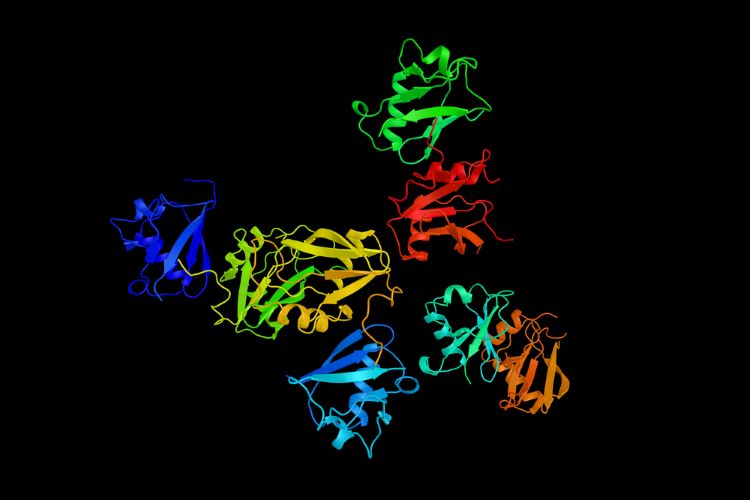Advancing NOX inhibitors for treating fibrotic diseases and cancer
Posted: 5 September 2024 | European Pharmaceutical Review | No comments yet
This article explores the benefit of NOX inhibitors for fibrotic diseases and cancers and highlights the potential of Calliditas Therapeutics’ drug setanaxib, including its application in wider related indications.


Reactive oxygen species (ROS) are unstable molecules that react with other molecules in a cell and can damage DNA, RNA and proteins. NADPH oxidases (NOX) are a group of enzymes responsible for producing ROS, the production of which is linked with inflammation and fibrotic conditions. There is speculation that reducing levels of ROS could help find treatments for a range of diseases including cancer as well as inflammatory and fibrotic diseases. Inhibition of NOX enzymes could therefore open a wide range of applications for NOX inhibitors.
So far, seven different NOX enzymes have been identified,1 NOX1-5 and dual oxidases 1 and 2 (DUOX1 and DUOX2). They have the similar functions but subtle differences in their structure that implicates them in different cellular processes. Research in the last few years has shown NOX4 in tumour cells is linked to the growth of cancer-associated fibroblasts (CAFs).2
These are cells commonly found in the stroma of the tumour, which play an important role in inhibiting the body’s own immune response to the tumour, mediated through CD8+ T-cells (tumour-infiltrating lymphocytes). Therefore, inhibiting NADPH oxidases in cancer could prevent the activation of cancer-associated fibroblasts that block the entry of CD8+ T-cells that are needed to drive the body’s immune response to cancer.
Current NOX inhibitors in development
Several companies are developing NOX inhibitor candidates which are in preclinical development. This includes Glucox Biotech’s GLX7013114, which inhibits NOX4 and is in development for diabetic retinopathy.
GlaxoSmithKline’s GSK2795039 has been tested preclinically as a way of limiting dose-dependent cardiotoxicity from doxorubicin, a widely used cancer drug.3
Separately, Sweden’s Calliditas Therapeutics AB anticipates having applications in several different indications with its NOX inhibitor setanaxib.
The NOX1 and NOX4 inhibitor is being tested in a range of fibrotic diseases including cancers where cancer-associated fibroblasts play an important role, such as tumours head and neck.
Research shows that setanaxib causes the cancer-associated fibroblasts to revert to their “normal” state, allowing CD8+ T-cells to penetrate the tumour and mount an immune response”
This is a cancer where Calliditas has the most advanced data from setanaxib available. Phase II data in squamous cell carcinoma of the head and neck (SCCHN) was announced in May this year.
Research shows that setanaxib causes the cancer-associated fibroblasts to revert to their “normal” state, allowing CD8+ T-cells to penetrate the tumour and mount an immune response.
Cancer-associated fibroblasts, and their effects of the immune activity in the tumour, are considered one of the main reasons why around four out of five patients do not benefit from immunotherapies such as checkpoint inhibitors.
To find a solution, Calliditas has been investigating how to alter the activity of cancer-associated fibroblasts, allowing CD8+ T-cells, the ‘backbone’ of cancer immunotherapy, to penetrate the tumour and improving the immune response to cancer.
Improving immune response – clinical data for NOX inhibitor setanaxib
Based on the data presented in May, summarising the preclinical and clinical data gathered so far, Professor Gareth Thomas, Professor of Experimental Pathology at the University of Southampton explained: “What we saw was an influx of CD8+ T-cells into the tumour in association with setanaxib treatment. If you can get rid of the exclusion [of CD8+ T-cells]… you can overcome the immunotherapy resistance driven by CAFs”.
These findings from the preclinical development programme are supported by results from a mid-stage clinical trial. While outcomes from the Phase II trial did not produce statistically significant data needed for approval, there was a strong indication that setanaxib worked as expected in humans.
In the Phase II trial of 55 patients with squamous cell carcinoma of the head and neck (SCCHN) there was a statistically significant improvement favouring setanaxib in progression-free survival (PFS), and overall survival (OS)”
In the Phase II study of 55 patients with squamous cell carcinoma of the head and neck (SCCHN), a statistically significant improvement favouring setanaxib in progression-free survival (PFS), and overall survival (OS) was reported.
At nine months, OS was 88 percent in a cohort of 27 patients treated with setanaxib and immunotherapy drug pembrolizumab. For the 28 patients who received only pembrolizumab, the OS was 58 percent.
Furthermore, compared to the placebo arm, a higher number of patients on the setanaxib arm had disease stabilisation and responses were found to be more durable.
Potential across multiple indications
For conditions related to fibrotic diseases, current therapies are mainly targeted to cholangitis, such as primary biliary cholangitis (PBC).
At its monthly meeting In June, the European Medicines Agency (EMA)’s human medicines committee recommended revoking its conditional marketing authorisation, threatening the status of Ocaliva (obeticholic acid) as a treatment for primary biliary cholangitis the European market.
Advanz Pharma, which markets the drug in Europe, needed confirmatory data from further clinical studies to maintain its conditional marketing authorisation granted in 2016.
During its evaluation, the CHMP deemed that neither a subsequent randomised study, nor real-world data, provided sufficient evidence that the benefits of Ocaliva outweighed its risks. The recommendation was passed to the European Commission (EC), which earlier this week, decided to revoke the conditional marketing authorisation for the drug. However the agency deemed supply of the treatment in the EU, subject to local laws and regulations, on a compassionate access or named patient programme basis for existing patients.
Yet several days following this, Advanz Pharma obtained a temporary suspension of the commission’s decision to accept the CHMP’s recommendation for Ocaliva.
Due to these developments with with Ocaliva, there is space for competitors Calliditas hopes that setanaxib will fit the bill.
A data readout from Calliditas’ Phase IIb trial in primary biliary cholangitis, comparing two doses of setanaxib with placebo, is due in Q3 2024. If successful, setanaxib could reach peak sales of more than $2 billion. An investigator-led Phase II trial is ongoing, comparing setanaxib with placebo, with results due in Q4 2024.
Calliditas also has Alport Syndrome in its sights, aiming to tackle the fibrotic disease of the kidneys that is a hallmark of this disease, which has no approved therapies at present. Promisingly, a Phase II trial in Alport Syndrome, comparing setanaxib plus standard RAS inhibitor therapy, with placebo plus RAS inhibitor in around 18 patients, is due to read out in Q1 2025.
In conclusion, with such a vast range of uses, NOX inhibitors have huge untapped potential in a range of indications.
References
- Cipriano A, Viviano M, Feoli A, et al. NADPH Oxidases: From Molecular Mechanisms to Current Inhibitors. Journal of Medicinal Chemistry [Internet]. 2023; 66(17):11632–55.
- Ford K, Hanley CJ, Mellone M, et al. NOX4 Inhibition Potentiates Immunotherapy by Overcoming Cancer-Associated Fibroblast-Mediated CD8 T-cell Exclusion from Tumors. Cancer Research. 2020; 80(9):1846–60.
- Hirano K, Chen WS, A. Chueng, et al. Discovery of GSK2795039, a Novel Small Molecule NADPH Oxidase 2 Inhibitor. 2015; 23(5):358–74.
Related topics
Big Pharma, Biopharmaceuticals, Clinical Development, Clinical Trials, Data Analysis, Drug Development, Immunotherapy, Industry Insight, Research & Development (R&D), Therapeutics
Related organisations
ADVANZ PHARMA, Calliditas Therapeutics AB, European Commission (EC), European Medicines Agency (EMA), GlaxoSmithKline, Glucox Biotech
Related drugs
Related people
Related diseases & conditions
Cancer, Fibrotic diseases, primary biliary cholangitis (PBC)









